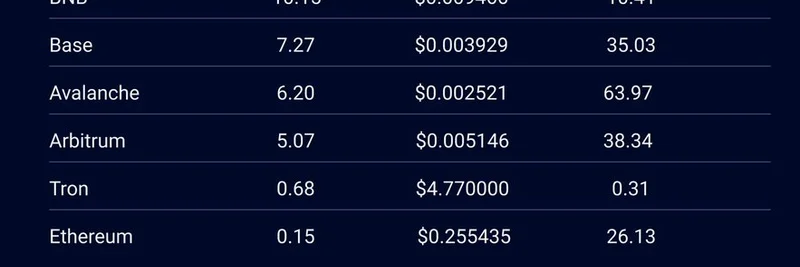In the fast-paced world of blockchain and cryptocurrency, transaction fees can make or break user experience—especially for meme token enthusiasts who thrive on quick, low-cost trades. A recent thread from DeFi Dev Corp. (@defidevcorp on X) introduces a new metric called the Fee Stability Ratio (FSR), which measures how reliable and affordable a blockchain's fees are over time. And guess what? Solana comes out on top, making it a prime playground for meme tokens.
DeFi Dev Corp., a company focused on Solana-based innovations and even listed on Nasdaq as $DFDV with a tokenized version $DFDVx on Solana, shared this insightful analysis. They highlight how unpredictable fees on networks like Ethereum can skyrocket, pricing out everyday users and small transactions. For context, Ethereum's average fee over the past five years has been around $4.11, but it once hit a whopping $196—talk about unusable for scaling meme token pumps!
What is Fee Stability Ratio (FSR)?
FSR is a straightforward yet powerful formula designed to rank blockchains based on their fee consistency:
FSR = 1 / (Median Fee × Median Fee Volatility)
- Median Fee: The middle value of transaction fees in USD, showing typical costs.
- Median Fee Volatility: How much those fees fluctuate, indicating predictability.
A higher FSR means lower and more stable fees, which is crucial for dApps (decentralized applications) and users handling transactions of all sizes. This metric helps identify chains that won't surprise you with sudden fee spikes during high network activity, a common pain point in the crypto space.
Solana's Dominance in FSR Rankings
According to the data from August 11-17, 2025, Solana boasts an FSR of 160.74, far ahead of competitors. Here's a quick breakdown of the top chains:
| Blockchain | FSR | Median Fee (USD) | Median Fee Volatility |
|---|---|---|---|
| Solana | 160.74 | $0.001201 | 5.18 |
| Polygon | 102.09 | $0.00918 | 10.67 |
| OP Mainnet | 46.55 | $0.000563 | 38.16 |
| BNB | 10.15 | $0.009466 | 10.41 |
| Base | 7.27 | $0.003929 | 35.03 |
| Avalanche | 6.20 | $0.002521 | 63.97 |
| Arbitrum | 5.07 | $0.005146 | 38.34 |
| Tron | 0.68 | $4.770000 | 0.31 |
| Ethereum | 0.15 | $0.255435 | 26.13 |
This visual from DeFi Dev Corp. illustrates the stark differences, with Solana's bar towering over others in green, while Ethereum languishes at the bottom.
In their thread, they emphasize that Solana's low median fee of just $0.001201 combined with relatively low volatility (5.18) makes it the most user-friendly. Ethereum, on the other hand, scores a dismal 0.15 FSR due to higher median fees and greater fluctuations.
Why This Matters for Meme Tokens
Meme tokens live and die by community hype and rapid trading. High fees can kill the fun—imagine trying to buy into the next big dog-themed coin only to pay more in gas than the token's worth! Solana's fee stability has fueled its meme token ecosystem, hosting hits like Dogwifhat and Bonk. With FSR confirming its reliability, developers and traders can build and swap without worrying about costs eating into profits.
For blockchain practitioners diving into memes, this metric underscores why Solana is often the launchpad of choice. It's not just about speed; it's about accessibility for everyone, from whales to retail investors.
DeFi Dev Corp. also shared another chart in the thread, reinforcing Solana's lead:
Final Thoughts
The introduction of FSR by DeFi Dev Corp. is a game-changer for evaluating blockchains beyond just TVL (Total Value Locked) or transaction speed. It puts the spotlight on real-world usability, where Solana shines brightest. If you're into meme tokens or DeFi, keeping an eye on metrics like this can help you navigate the crypto landscape smarter.
What do you think about FSR? Does it change how you view your favorite chains? Check out the full thread on X for more details, and subscribe to DeFi Dev Corp.'s blog for ongoing insights. Stay ahead in the meme token game!


